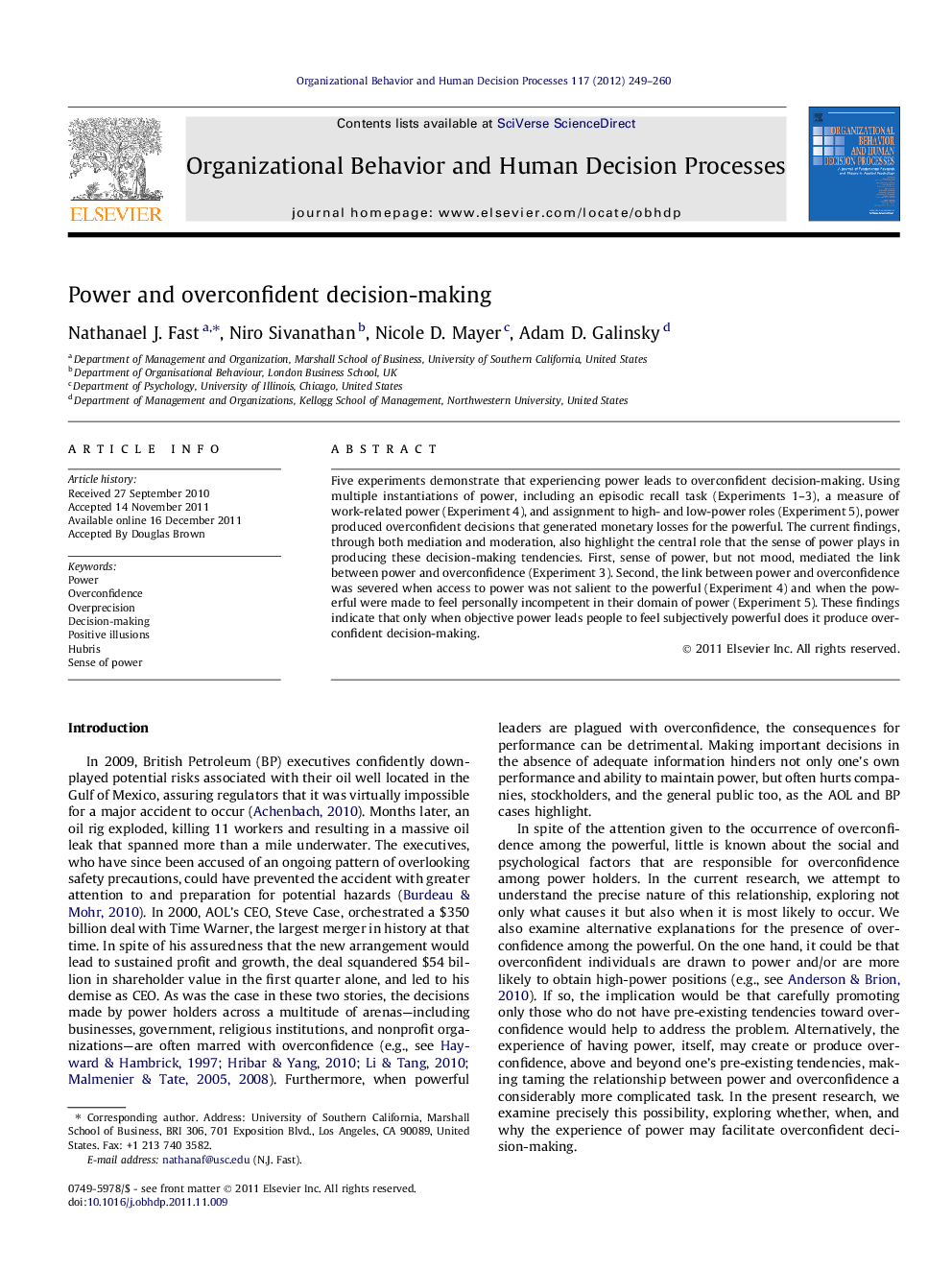| Article ID | Journal | Published Year | Pages | File Type |
|---|---|---|---|---|
| 888652 | Organizational Behavior and Human Decision Processes | 2012 | 12 Pages |
Five experiments demonstrate that experiencing power leads to overconfident decision-making. Using multiple instantiations of power, including an episodic recall task (Experiments 1–3), a measure of work-related power (Experiment 4), and assignment to high- and low-power roles (Experiment 5), power produced overconfident decisions that generated monetary losses for the powerful. The current findings, through both mediation and moderation, also highlight the central role that the sense of power plays in producing these decision-making tendencies. First, sense of power, but not mood, mediated the link between power and overconfidence (Experiment 3). Second, the link between power and overconfidence was severed when access to power was not salient to the powerful (Experiment 4) and when the powerful were made to feel personally incompetent in their domain of power (Experiment 5). These findings indicate that only when objective power leads people to feel subjectively powerful does it produce overconfident decision-making.
► We find that power leads to overconfidence in the accuracy of one’s knowledge. ► Power-induced overconfidence leads power holders to underperform on accuracy tasks. ► Sense of power mediates the relationship between power and overconfidence.
